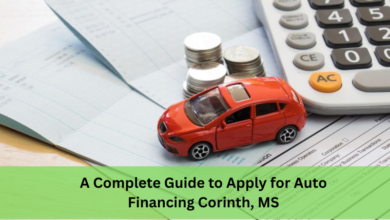What Is Estate Planning? Safeguarding Your Financial Legacy

It is important to know which professional responsibilities relate to estate planning and which do not, as some of the protections are offered to the deceased. If you are a US citizen or in another jurisdiction, a proper estate plan will ensure your wish is recognized and secured.
What Is Estate Planning?
That means organizing your financial matters, being prepared if you become incapacitated, and deciding what happens to your assets when you die. This involves drafting legal documents, including wills and trusts, naming beneficiaries and assigning powers of attorney (for financial and medical decisions). But the objective is to make sure your assets are dealt with the way you want, while minimizing taxes, avoiding lengthy legal processes like probate, and providing peace of mind for your loved ones.
Essential Elements of an Estate Plan
An effective estate plan usually consists of the following key components, each having its specific role:
- Will: A legal document outlining how your assets should be distributed, naming guardians for minor children and naming an executor to manage your estate upon death.
- Trusts: Legal arrangements that manage your assets while you’re still alive and guide how they’re distributed after your death, often helping to avoid probate and providing possible tax advantages.
- Powers of Attorney: Documents naming someone to make decisions on your behalf if you’re unable to do so as a result of illness or injury.
- Healthcare Directives: Instructions about your preferences for medical treatment when you cannot communicate them yourself.
- Beneficiary Designations: Special instructions for accounts such as life insurance policies and retirement accounts that determine the person who receives the proceeds when you pass away.
Why Estate Planning Is So Important
Estate planning is not just for the wealthy, but for anyone who wants to ensure that their assets and loved ones are taken care of. Here are the vital reasons to focus on estate planning:
- Distributing Assets: It handles the distribution of your assets, as you intend them to go, be it to family, friends or charities.
- Minimizing Taxes: A good estate plan employs techniques to minimize estate and inheritance taxes and, as a result, allows you to pass down more wealth to your heirs.
- AVOIDING PROBATE: A correctly formatted and executed estate plan, especially through trusts, allows one to avoid the probate process, which can be cumbersome and costly in many jurisdictions.
- Providing for Incapacity: In the event of your incapacitation, your agents can handle your financial and healthcare matters in accordance with your wishes.
- Peace of Mind: Having your affairs in order and knowing that your loved ones will be taken care of following your wishes can provide emotional security, particularly in times of grief.
The Cost of Estate Planning
How much estate planning costs depends on things like how complex your estate is, who you hire to help you with the details and where you live. With that, here are broad estimates of cost:
- Will: $300–$1,000 for a basic will
- Living Will (Advance Healthcare Directive): $300 — $1,000; the cost of yours depends on how simple or complex your preferences are.
- Power of Attorney: Appointing someone to manage your financial or healthcare decisions typically costs $100-$400.
- Trusts: A revocable living trust can cost from about $2,000 to create, with costs increasing depending on your estate complexity.
Keep in mind that online packages may look cheaper, but speak to a lawyer that specializes in estate planning that might provide a legally soundly and individualized plan.
Regional Variability in Costs and Legislation
Estate planning fees can vary widely depending on your location. Legal fees, taxes and the specifics of probate laws differ from state to state or country to country. For example, certain states in the U.S., including California may charge higher estate planning and probate fees. Likewise, the estate taxes and legal fees vary in jurisdictions outside the U.S.
How the Probate Process Works and Its Impact
Probate is the legal process through which a deceased person’s estate is managed and distributed. In many jurisdictions, probate can be lengthy (taking months to resolve) and incur significant fees, which minimizes the estate’s true value. And it needs a court’s oversight, which can cause delays in asset distribution.
A lot of people include trusts in their estate plans to avoid the probate process. Trusts can transfer ownership of property (assets) to heirs without going through probate which is quicker and more efficient. Probate can have different effects based on the jurisdiction, which is why you need to foster your own plan for local laws.
Estate Planning in the Digital Age: Preparing for a New Future
In our digital world, considering digital assets as part of your estate plan is becoming more and more important. These can include:
- Online bank accounts, investment accounts and digital wallets.
- Social media accounts, including photos and videos.
- Email and other online services.
Many estate plans now also cover these digital assets so that they can be transferred or deleted as you direct. Specific laws may exist in different jurisdictions covering digital asset management, and so addressing these concerns in your estate planning is critical.
Myths and Misconceptions of Estate Planning
There are several myths that can deter people from putting an estate plan in place:
- It’s Only for the Rich: Estate planning is important for everyone who owns anything or relies on someone else for support. An estate plan can help your heirs, no matter the size of your estate, get what they’re entitled to.
- One and Done: Estate planning is not a one-and-done task. Major life changes, such as getting married, welcoming a new child, or a major alteration in your assets, should trigger regular updates to your plan.
- It’s Too Complicated: Although estate planning appears complicated, getting it down into practical steps with the right professional help makes this analysis simple.
How to Start Planning Your Estate
The process of estate planning starts with a few key steps:
- Evaluate What You Own and What You Owe: Make a detailed inventory of your assets real estate, savings, investments and of your liabilities debts, mortgages.
- Set Purpose: Consider your objectives with your estate plan, be it providing for loved ones, reducing taxes, or donating to charity.
- Pick Your Pros: Avoid do-it-yourself here; an estate planning attorney, financial advisor, and tax pro should work together to ensure your plan is complete and legally sound.
- Draft Essential Documents: These include your will, trusts if needed and powers of attorney for financial and health decisions.
- Review and Revise Your Plan: Estate plans should be reviewed regularly — especially after major life changes, such as marriage, divorce or a major inheritance.
Final Thoughts: Protect Your Financial Future Now
Here are some reasons why estate planning gives you the joy you deserve in life. It offers peace of mind emotionally, alleviates stress for loved ones, and means your wishes will be honored.
Ensure your legacy as soon as possible. Start your estate planning journey today by evaluating your assets, setting your goals, and seeking the help of estate planning professional. The earlier you start, the better you can safeguard your wealth, your loved ones and your digital property.





